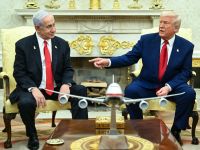"Qatar Today spoke to experts in the field to find out whether Qatar is legally prepared to host the 2022 World Cup. A team of professors at the College of Law at Qatar University was recently awarded the National Priorities Research Program award and a grant of half a million dollars to research this topic, and speaking to them gave us a clearer picture of the dilemma the nation faces."
The FIFA World Cup is bigger than the game of football. A great unifying force, it brings together people from all corners of the world and walks of life. On the field, it is a way of life, a thing of beauty. But off the field, it's a whole other story and often deeply divides organizers, hosts and fans. It has been five years since the bid and the recent restructuring in major oil companies has affected the progress of the World Cup projects here. Construction is at a standstill and the progress slow. Through constant monitoring FIFA authorities are making sure that this country delivers what it promised. But the involvement of FIFA in the hosting nation's policies and regulations can go too far. Yes, Qatar seeks prestige and greatness, but is it really prepared
Professor Francis N. Botchway, Associate Dean of Research at the College of Law, Qatar University, explains what it really means to host the World Cup in this part of the world. "Qatar has strict legislation that cannot be changed over night; this will take time, which is why the first step is research." In a initiative by the Qatar Supreme Committee for Delivery and Legacy, the College of Law is to join other lawyers in the state to advise on legal requirements in hosting an event of such grandeur and impact.
An in-depth analysis into the topic is very important to understand the repercussions of any laws that may need to be changed to host the tournament. With almost half the population of the world watching, countries that host the World Cup seek prestige and global attention. FIFA, as a non-governmental sports organization, has no right to change the complete legal system of a country but enters into an agreement with the host nation to accept its requirements. For the games in Brazil, FIFA made it mandatory to allow alcohol into the stadiums, something the government had previously banned. Qatar has strict laws regarding homosexuality and consumption of alcohol in public spaces. It's going to be a battle between authorities to modify these laws.
The stakeholders have also been caught unawares by the low oil prices and resulting restructuring, retrenchment and stop on government projects The laws governing the construction sector are also being monitored so labourers are not affected and contractors are put under legal obligations and agreements so as to avoid delays and losses.
Along with the students, who are significant contributors to the research, the four professors who are the brains behind this project are Associate Professor Dr Hassan Elbarawy, Asst. Professor Dr Yassin El Shazly, Asst. Professor Dr Tarek Gomaa El Sayed Rashed, Associate Professor Dr Abdelnaser Zeyad Ali Hayajneh and Associate Dean Dr Francis N Botchway.
The objectives of this research are concerned with labour practices, project completion, intellectual property and logistics. The laws are many and scattered in different places, especially when it comes to intellectual property in terms of franchising, marketing, branding and knowledge management.
The major question here is should we have a delegated legislation from the government which allows the Supreme Committee of Delivery and Legacy to modify any laws it thinks necessary or to go piece by piece to check whether the laws are consistent and ask the cabinet to change them according to FIFA regulations. "My view and the best strategy to adopt is to have a delegated legislation to modify the laws but with notifications to the cabinet, as in the end it is the government's decision with regards to laws of the land. It isn't respectful towards a nation to ask them to change laws that are FIFA-compliant. An easier way to understand this is that one strategy comes from FIFA directly interfering in the legislative system of the country as a whole and the other strategy comes locally from the host nation's organizations to direct FIFA to approach the Supreme Committee and request them to modify laws for the event."
"If the World Cup Act is to be played in Qatar, it will provide predictability, transparency and incitement to modernize a number of existing laws and regulations," says Dr Minas Khatchadourian, Arbitrator in Sport Law appointed by the Court of Arbitration for Sport (CAS) in Qatar.
FIFA is under much scrutiny because of the way their requirements seem to benefit them in a greater way than the host country. "Their posture appears to be insensitive to the needs of the country at times. They are of an opinion that they are announcing a country to the world in the 21st century in terms of tourism, publicity and advertising the country's first-class facilities and services; but this will not come at FIFA's own cost and the host country will have to bear the price and consequences. They also do not force any country to bid and people fight for it at a global level. It is difficult to maintain the balance between what FIFA wants and a country wants. A give-and-take policy for visibility and profitability comes into play."
The second major aspect of this research is the construction of infrastructure and how it can run smoothly without jeopardising the event. This involves policies with regards to the contracts, agreements, execution, breach of contracts and dispute management. "The construction of stadiums also comes into the picture as we have to deliver according to the bid made and on schedule. The consequences of delay have to be minimized, if not avoided. The domino effect should be considered. For example, the construction of one stadium involves the hiring of many subcontractor services such as surveyors, electricians, plumbers, etc. Even if the work of one subcontractor is stalled for any reason, it affects the turn-around time of every other component related to the project which will result in losses and delays. To control these circumstances, mechanisms have to be put into place for remedies of breach of contracts and dispute management systems, as the 2022 deadline is non-negotiable."
FIFA has strict benchmarks to meet when it comes to the stadiums, facilities, airports, logistics and the publicity of the event. They go so far as to regular inspections of the work sites and review policies related to the event as well.
The lead organizer of this research project, Dr. Yassin El Shazly, Associate Dean of Outreach and Engagement, and Asst Professor of Commercial Law at College of Law, Qatar University, says "Qatar has been involved in organizing and managing globally acclaimed sports events in the past. What is the relation between sports and law Organizing mega sports events such as the Handball tournament, Asian Games 2006, and the AIBA World Boxing Championship this year has economic, social and legal consequences, mostly related to the construction sector.
You expect to have millions of visitors which require new hotels, bridges, tunnels, stadiums, railways and this requires finance from the host nation as well as a legal framework that guarantees the smooth running of these projects starting from the design stage, going through the tender and bidding process, implementation and, finally, to delivery. So my colleagues and I decided to tackle this issue of how could the current laws address the World Cup preparations. We decided to study the construction sector and asked Do we currently have the framework designed for this process For example, South Africa enacted a law that enabled speed trials in smaller courts to deal with crimes committed by fans (expats) during the World Cup. Previously Brazil enacted the World Cup Act to harmonize the situation and accommodate the FIFA requirements. Russia, the next hosts, are also making changes in their legislation to host the World Cup."
The professors decided to concentrate their research on the construction sector over a span of two years in order to revisit the terms and conditions of agreements made by construction companies pertaining to the infrastructure development for the World Cup facilities. "Starting from acquiring licences to supervision of execution until delivery of the projects, Qatar will spend $80 billion to be prepared for 2022. You cannot just host a World Cup with the push of a button; it is an intellectual and an interactive process that requires human contribution." On the topic of labour laws and the recent public criticism on the working and living conditions of the labourers, he says, "Those who are liable for the protection of laborers should be questioned.
Qatar only provides a way and certain rules for workers who would like to come and work here in terms of sponsorship rules, residence, working and exit permits. The actual supervisor is not the state but the companies that hire them. This situation is often misrepresented by the media. It is also the private companies that hire them and their home countries that are liable and should be questioned, and not just the public sector."
Gradual changes to the system have been made by the state to ensure that workers are being paid through the new system of transferring salaries to bank accounts. The minimum wage system has also been put on the table for discussion. "Some sort of dialogue is needed between the private and public sector to resolve and address these issues and to guarantee the smooth resolution of disputes. Investing in translation of rules and information and making it available through online portals will help workers understand the process. It is important to also resolve disputes in courts but also through alternative methods such as negotiation, arbitration and mediation in order to preserve the relationship."
When asked how effective are the alternative methods of arbitration and negotiation as opposed to settling matters in court for resolving disputes, Dr. Khatchadourian said, "Mediation and arbitration are very practical means to obtain an out-of-court decision and to resolve disputes in an efficient way. However, other elements or components are necessary such as a modern body of rules for arbitration, competent and qualified arbitrators, and an arbitration-friendly position of the national state courts at the stage of the enforcement of arbitral awards. The other sectors in which common disputes may arise from are telecommunications, insurance, shipping and transportation."
This topic of research also involves consultants from the Construction Law Centre at King's College London. It is worth mentioning that this study is a first of its kind at the regional level about a legal subject that has multiples facets relating to health and safety. "It's a transversal study that is related to different disciplines. The consultants will come in at the launch phase of the project to analyze the outcome. One of the main deliverables of the project is the website in which you can find all the legislations related to the construction sector, from the license approvals to the final delivery, the regulations and ministry decrees, which will be in Arabic and English," says Dr Khatchadourian.
The grant money will be used to recruit research assistants, consultants, translators and for workshops and seminars, and a significant amount is to be used for the creation and maintenance of the website. The target is to conduct two workshops per year to discuss these issues and involve stakeholders such as Ashghal, Kahramaa, Ministry of Interior, Civil Aviation, Ministry of Justice, Ministry of Economy and Trade, Supreme Council of Health and so on. Findings of the research team, how the participants perceive them and action plans to tackle any issues will be discussed. The research findings are to be presented to Qatar National Research fund (QNRF) established by Qatar Foundation.
"The World Cup Act will be a better solution to enact the assurance and insurance of liability towards the construction sector" is what Dr. El Shazly believes in. "Experiences from the past host nations like South Africa and Brazil, and the future host nation Russia, will bring a better perspective to understanding what Qatar needs in terms of its legal framework related to the FIFA World Cup 2022."
Research agenda
- How to make private sector more accountable towards the government and International Labor Organization (ILO) rules.
- Training of inspectors and how to give them access to tools that could help in their work progress.
- How to ensure transparency and fair competition in the tender and bidding process.
- Access to law by labourers who don't speak Arabic or English and how to inform them of their own rights and obligations in their own language.








